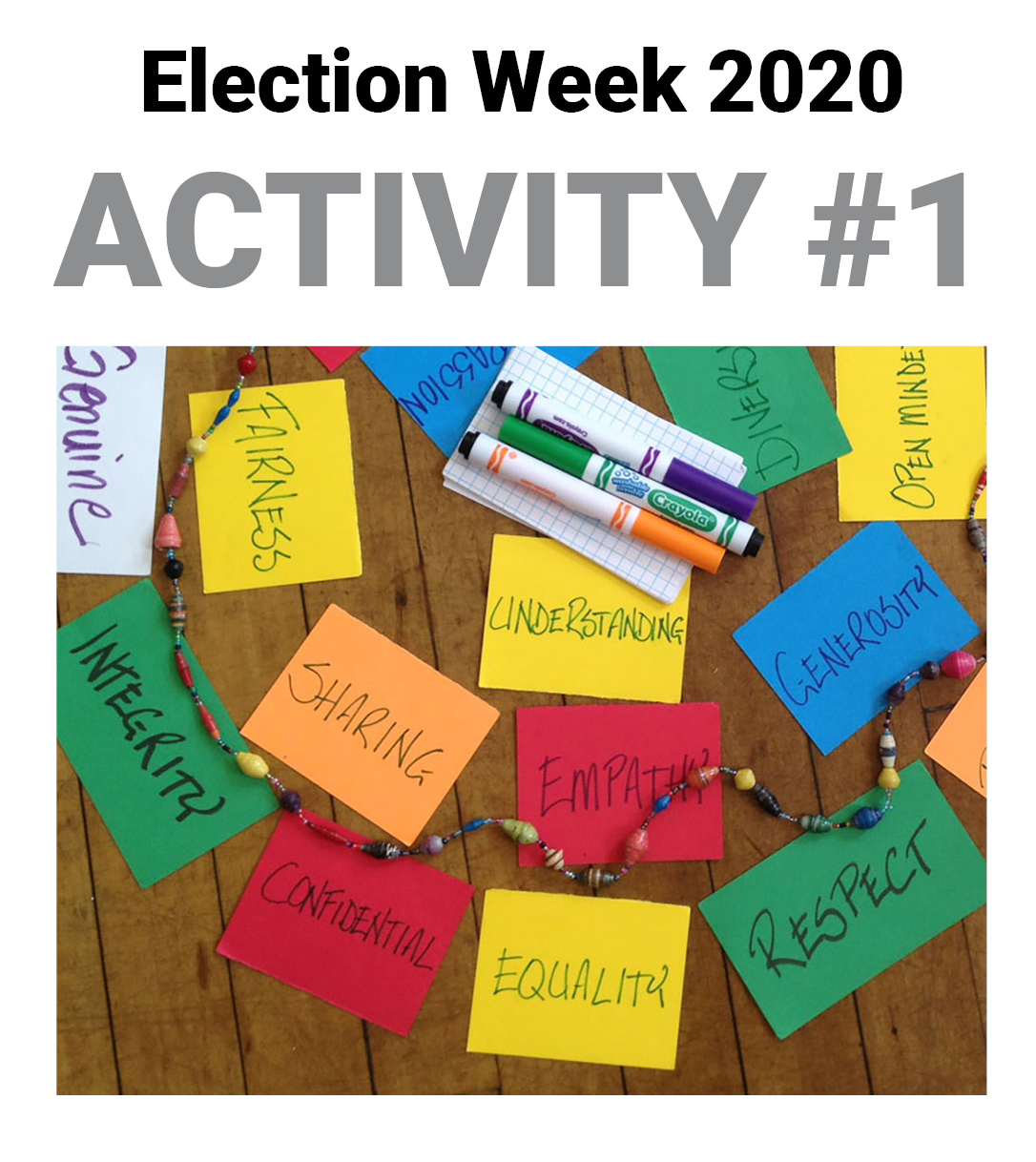To the Teacher:
The deep sense of uncertainty in our country as the 2020 election approaches has strongly affected our students. This lesson provides students with an opportunity to share their feelings and/or thoughts at this historic moment. Before you begin, see these guidelines for Election Week discussion.
 Introduction
Introduction
Share with students that as the presidential election approaches, many people are feeling anxious and uncertain. The election has been contentious and polarizing within our country, and that can make it difficult to have a conversation and to listen to people who have different perspectives or experiences.
With this in mind, we will practice respectfully listening to one another without escalating into an argument. To create this listening space, we will initially revisit our values and community agreements to ensure that everyone feels welcome and belongs.
To practice this, we’ll take a pause to listen to each other. Everyone will have an opportunity to share what they are feeling and thinking about how they are affected by the election, without being interrupted.
Review community agreements
Before opening the discussion, revisit or create community agreements with your class to foster a sense of inclusiveness. How do we want to show up for each other during this discussion and throughout this period?
Community agreements could include:
- One mic
- It's okay to pass if you need more time to think or would rather not respond
- Speak from the “I,” not about the “you.”
- Respect different opinions, especially those that are different from your own
- Be your own barometer – share as much as you feel comfortable sharing
- Confidentiality: what is said in this space stays in the space
Opening
Ask students to journal for five minutes about what feelings and/or thoughts are coming up for them around the presidential election.
Alternatively, ask your students to respond to the following question:
- When it comes to the election, what do you want to learn more about, or what questions do you have?
Taking a Pause to Listen
Tell students that today, we’ll take a pause to listen. Through this process, we’ll have an opportunity to say what we are thinking and feeling related to the election. Each person will have a chance to speak and to listen, without being interrupted.
It is not a time for discussion or dialogue, and you are not responding to what other people say.
Rather, each person will be invited to speak in response to a question or prompt. When a person is speaking, everyone else should listen only and not interrupt. The intention is not to listen in order to reply, but to listen in order to understand – which is a rarity during this election. Our goal is to listen carefully to what everyone is feeling without getting into a heated political conversation.
Each person will have a minute to share your thoughts and feelings – or to pass. The “taking pause to listen” process is over after every person has had at least one chance to speak.
Note to the teacher: If you are facilitating this lesson online, you might want to post the order of who will go first, second, and so on in the chat box.
Prompts for sharing:
- What feelings or thoughts are coming up for you around Election Day?
- When you have strong feelings around the election, what is one thing you have done, or will do, to take care of yourself during these uncertain times?
- What specifically do you want to learn more about, and what questions do you have about the election?
- Without naming anyone specifically, how did it feel to listen to people who have similar feelings/thoughts?
- Without naming anyone specifically, how did it feel to listen to people who have different feelings/thoughts?
Closing
To conclude, we are going to practice one self-care strategy that you can use to manage feelings around the election.
Ask students to close their eyes – or rest their gaze on the floor or surface in front of them.
Take four slow breaths, in … and out.
Next, invite each student to share one hope they have for those who are feeling anxious during this period.